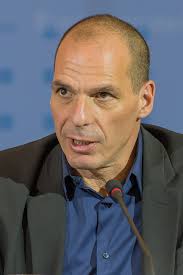Yanis Varoufakis: A Key Player in Modern Economic Debate

Introduction
Yanis Varoufakis, the former Greek finance minister and prominent economist, has emerged as a significant figure in the discourse surrounding economic policy and reform. His radical approach to handling Greece’s financial crisis has not only influenced national policies but has also sparked discussions on a global scale about the nature of modern capitalism and fiscal responsibility.
Background and Political Career
Borne in Athens in 1961, Varoufakis studied economics at the University of Athens and pursued postgraduate studies in the UK and the US. He built a career as an academic, teaching at various institutions before entering politics. In January 2015, he was appointed as Greece’s finance minister in the newly elected Syriza government, which promised to end austerity measures imposed by international creditors.
Role in the Greek Financial Crisis
During his tenure, Varoufakis advocated for a new approach to Greece’s economic troubles. Armed with a sharp critique of austerity, he sought to renegotiate Greece’s substantial debt with the European Union and the International Monetary Fund. His negotiations, characterised by a confrontational style and a push for progressive reforms, drew both praise and criticism internationally.
Impact and Philosophy
Varoufakis’s stance on economic policy embodies a belief in promoting social welfare and public investment over traditional austerity measures. His philosophy, which he describes as ‘Modern Monetary Theory’, advocates for governments to use their currency-issuing capacity to fund public programs, particularly in times of economic distress. This has garnered wider attention as more countries grapple with post-pandemic recovery plans.
Recent Developments
Since leaving his ministerial position in July 2015, Varoufakis has continued to engage in international discussions about economics through writing and public speaking. He launched the DiEM25 movement, advocating for reforms across Europe aimed at democratizing the European Union’s policies. His influential voice remains relevant as countries continue to face economic challenges exacerbated by the COVID-19 pandemic.
Conclusion
Yanis Varoufakis’s journey from an academic to a political icon exemplifies the intense debates surrounding economic reform in a globalised world. As he continues to challenge traditional economic narratives, his work encourages critical reflection on fiscal policy’s role in addressing societal challenges. The economic dialogues he has fostered will likely leave a lasting impact on policymakers and citizens alike, encouraging a more robust debate on the future of economic governance.
